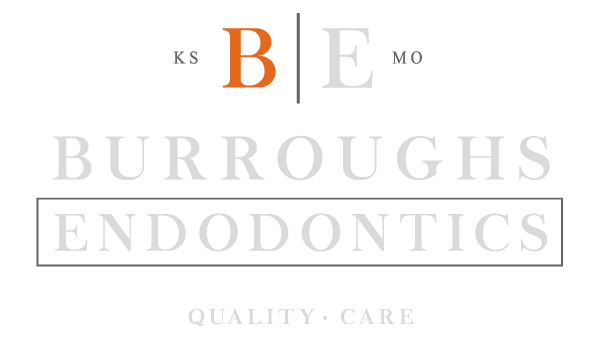Root Canal Services in Overland Park, KS
Root Canal Therapy
REQUEST AN APPOINTMENTRoot canal therapy, or endodontic treatment, is necessary when the pulp becomes inflamed or infected. This can be from a have a variety of causes: deep decay, repeated dental procedures on the tooth, faulty fillings or crowns, trauma or a crack or chip in the tooth. If pulp inflammation or infection is left untreated, it can cause pain or lead to an abscess. From AAE.org
Root Canal Retreatment
With proper care, even teeth that have had root canal treatment can last a lifetime. But sometimes, a tooth that has been treated doesn’t heal properly and can become painful or diseased months or even years after treatment. If your tooth failed to heal or develops new problems, you have a second chance. An additional procedure may be able to support healing and save your tooth. If you are experiencing dental pain or discomfort in a previously treated tooth, talk to an endodontist about retreatment. From AAE.org
GentleWave Procedure
Surgical Root Canal Therapy
Occasionally, a standard root canal procedure won’t be enough to save your tooth. Endodontic surgery can be used to locate small fractures or hidden canals previously undetected on X-rays during the initial treatment. Surgery may also be needed to remove calcium deposits in root canals, or to treat damaged root surfaces or the surrounding bone of the tooth. From AAE.org
Traumatic Injuries
They were quick to get us in when my son needed root canals done. Were very helpful during the process, and explained details of what was happening. Great service, would definitely go back if needed again for any reason.
I had a wonderful experience cause Dr Burroughs did a quick and thorough job. My pain was quickly gone after the root canal and would recommend Dr Burroughs to family and friends!
All I can say is wow. I called when they first opened for an emergency root canal. As my tooth pain have been keeping me up for two nights with zero sleep. I was in town on business in overland Park area. 2 hours later I was in I had my root canal done in record time and I was finally able to get some sleep. A big thank you to Dr Burroughs Erica and the rest of the staff.
Root canal, no pain procedure! Great staff! Wonderful Dr. takes the time to explain the procedure. Had to after hours extremely fast return call. Can’t say enough, friendly, compassionate and great communication from appointment to post procedure. 👍
How Will My Injury Be Treated?
Dislodged (Luxated) Teeth
Will the Tooth Need Any Special Care or Additional Treatment?
Cracked Tooth or Root Fracture
SCHEDULE YOUR APPOINTMENT NOW!
CONTACT US
Contact Us
We will get back to you as soon as possible.
Please try again later.

